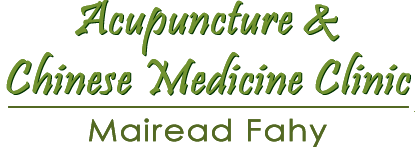Women with PCOS benefit from Acupuncture and Excercise
Natural alternative medicine therapies such as acupuncture and regular exercise may improve hormone levels and regulate menstrual bleeding patterns in women with polycystic ovary syndrome (PCOS), according to research from the University of Gothenburg, Sweden.
What is PCOS?
In the recent study, published in the American Journal of Physiology-Endocrinology and Metabolism, a group of women with PCOS were treated with acupuncture where the acu-needles were stimulated both physiically and with a weak electrical current at a low frequency.
A second group of women were asked to exercise at a minimun of three times a week, while a third group acted as control subjects. All of the groups were given information on the importance of regular exercise and a healthy diet.
“The study shows that both acupuncture and exercise reduce high levels of testosterone and lead to more regular menstruation,” says associate professor Elisabet Stener-Victorin, who is responsible for the study. “Of the two treatments, the acupuncture proved more effective.”
Cause
Although PCOS is a common disorder, researchers have not dertimined the root cause.“However, we’ve recently demonstrated that women with PCOS have a highly active sympathetic nervous system, the part that isn’t controlled by our will, and that both acupuncture and regular exercise reduced levels of activity in this system compared with the control group, which could be an explanation for the results.”
This study is encouraging for PCOS sufferers as it allows for more natural treatment methods such as acupuncture, nutrition and excercise to help manage many of the symptoms of polycystic ovary syndrome and possibly increase fertility rates and the chance of conception for women trying to get pregnant.
Reference
edel, F. Labrie, A. Oden, G. Holm, L. Nilsson, P. O. Janson, A.-K. Lind, C. Ohlsson, E. Stener-Victorin. Impact of electro-acupuncture and physical exercise on hyperandrogenism and oligo/amenorrhea in women with polycystic ovary syndrome: a randomized controlled trial. AJP: Endocrinology and Metabolism, 2010; 300 (1): E37 DOI: 10.1152/ajpendo.00495.2010

